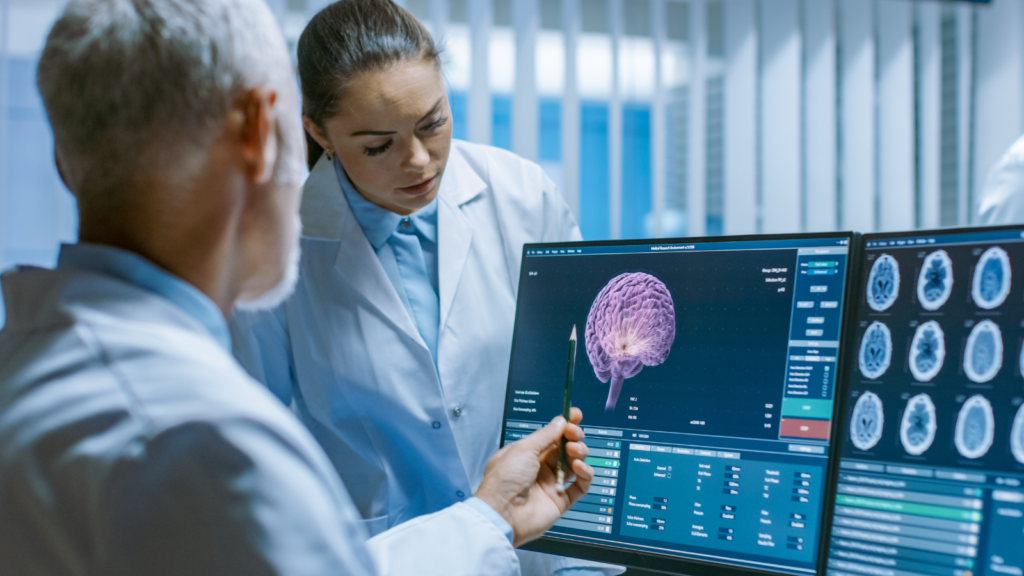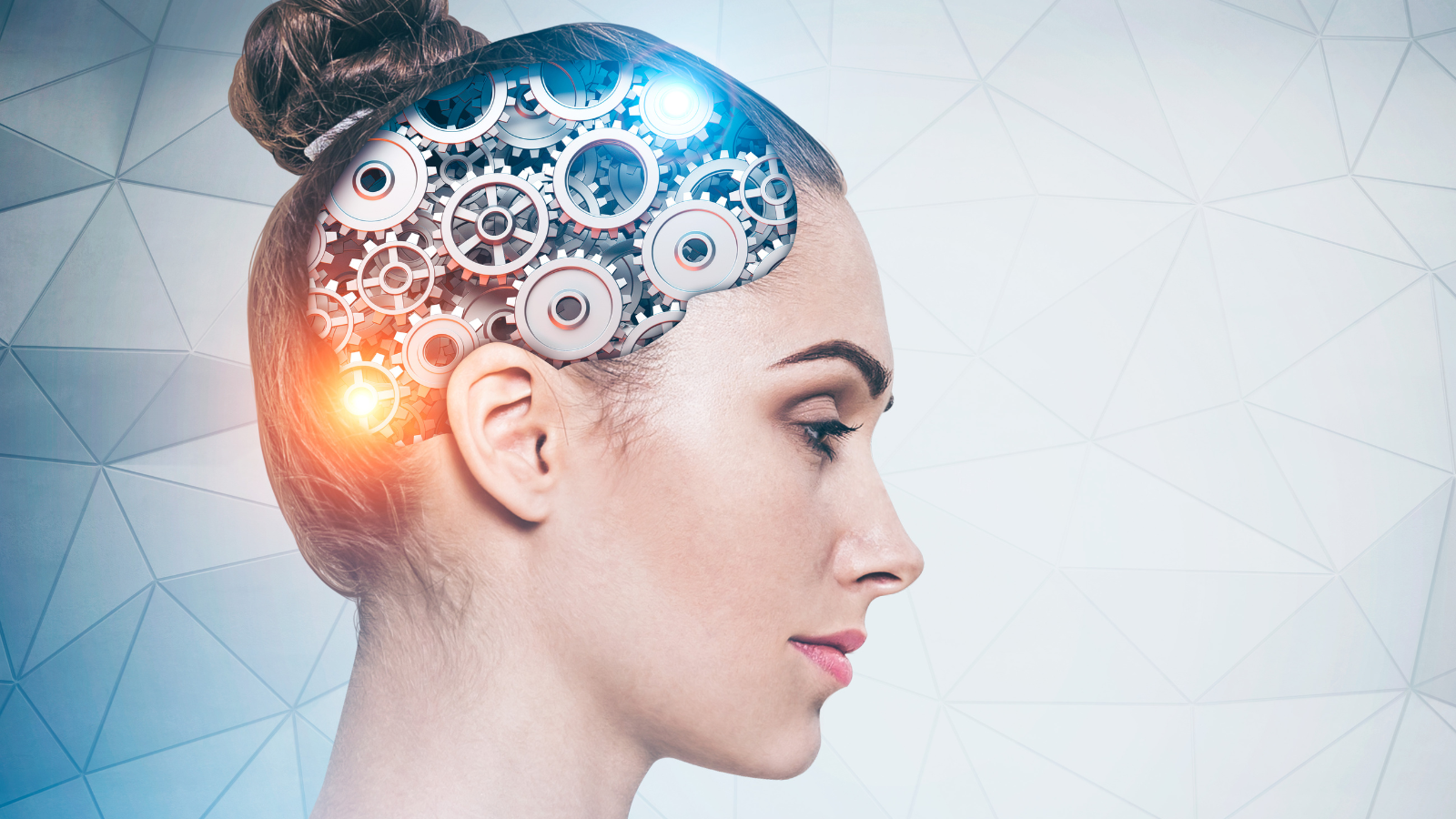Smart Aging: Top Trends for Improving Brain Health in 2024
As we journey through life, maintaining and improving brain health becomes increasingly important. The good news is that recent advances in technology, scientific research, and lifestyle modifications are providing us with innovative ways to keep our minds sharp and agile.
From smart gadgets that track our health metrics to groundbreaking studies on genetic aging, there are plenty of exciting developments to help us age gracefully and stay mentally fit.
The focus on brain health is more significant now than ever before and for a good reason. With a better understanding of how our brain ages and the factors that influence this process, we can take proactive steps to preserve our cognitive abilities.
Whether it’s through engaging in virtual reality games designed to boost cognitive function, adopting a diet rich in brain-healthy nutrients, or leveraging telehealth services for more convenient healthcare, there’s an abundance of strategies to explore.
Embracing these trends not only enhances our mental well-being but also enriches our overall quality of life, allowing us to enjoy our golden years to the fullest.
Technological Advancements in Brain Health

Health and Wellness Trackers
One of the most significant advancements in brain health technology is the proliferation of health and wellness trackers. Devices like smartwatches and fitness rings, such as the Apple Watch and Oura Ring, have revolutionized how we monitor our health.
These wearables can track vital signs, including heart rate, blood pressure, and sleep patterns, providing real-time data that can be used to detect early signs of health issues.
For instance, irregularities in heart rate or disrupted sleep patterns can be early indicators of stress or other underlying health problems that might affect cognitive function (The Seattle Medium).
Moreover, these devices are increasingly incorporating features to monitor mental health. By analyzing data such as heart rate variability and sleep quality, they can provide insights into our stress levels and emotional well-being.
This continuous monitoring allows individuals to make informed decisions about their health and take proactive steps to manage stress and improve mental health.
The integration of these smart wearables into daily life offers a convenient and effective way to maintain brain health and overall wellness as we age (The Seattle Medium).

Virtual Reality (VR) for Cognitive Engagement
Virtual reality (VR) has emerged as a powerful tool for cognitive engagement and rehabilitation, particularly for older adults.
VR applications are being developed to enhance cognitive function, improve memory, and provide therapeutic benefits for conditions like dementia and Alzheimer’s disease.
For example, brain training games and virtual reality therapy can stimulate various cognitive functions, from problem-solving to memory recall.
One notable application of VR in brain health is its use in immersive experiences that promote relaxation and stress reduction.
By transporting users to different environments, such as a serene beach or a bustling city, VR can provide a mental escape that helps reduce anxiety and improve mood.
Additionally, VR can offer interactive experiences that encourage mental stimulation and social interaction, which are crucial for maintaining cognitive health as we age. These virtual experiences can be tailored to individual needs, making VR a versatile and effective tool for enhancing brain health.
Telehealth and Remote Health Services
The rise of telehealth and remote health services has transformed the landscape of healthcare, making it more accessible and convenient for older adults.
Platforms like GoodRX Care and Doctor On Demand allow individuals to consult with healthcare professionals from the comfort of their homes.
This accessibility reduces the need for travel and long waits in doctor’s offices, which can be particularly beneficial for those with mobility issues or chronic conditions.
Telehealth services offer a wide range of benefits, including video consultations, prescription refills, and virtual therapy sessions.
These services ensure that individuals receive timely medical advice and support, which is crucial for maintaining brain health.
Regular check-ins with healthcare providers can help manage chronic conditions, monitor mental health, and provide guidance on lifestyle changes to promote cognitive well-being. The convenience and accessibility of telehealth make it an invaluable resource for supporting brain health as we age.
Epigenetic Research and Biological Age

Development of Advanced Epigenetic Clocks
Recent breakthroughs in epigenetic research have significantly advanced our understanding of biological aging. Epigenetic clocks, which predict biological age based on DNA methylation patterns, have become crucial tools in aging research.
DNA methylation refers to chemical modifications to DNA that can influence gene expression without altering the DNA sequence itself. These modifications occur at specific regions of the DNA known as CpG sites, which are strongly associated with aging.
Researchers at Harvard-affiliated Brigham and Women’s Hospital have developed a novel epigenetic clock using a machine-learning model.
This clock, unlike previous versions, can distinguish between genetic changes that accelerate aging and those that counteract it.
This distinction is crucial because it allows scientists to identify the specific factors that contribute to biological aging and evaluate the effectiveness of anti-aging interventions with greater precision (Harvard Gazette).
The new epigenetic clock, called CausAge, along with its subsets DamAge and AdaptAge, focuses on causative DNA factors that influence aging.
By analyzing a large genetic dataset and performing epigenome-wide Mendelian Randomization, researchers have pinpointed CpG sites that are causal to various aging-related traits, such as lifespan, health span, and frailty index.
This innovative approach provides a more accurate measure of biological age and offers insights into how lifestyle and environmental factors impact the aging process (Harvard Gazette) (ScienceDaily).
Role of DNA Methylation in Aging
DNA methylation plays a significant role in the aging process, influencing how genes are expressed throughout our lives. Lifestyle choices, such as diet, exercise, and smoking, can impact DNA methylation patterns, which in turn affect our biological age.
For instance, individuals with similar lifestyles may age at different rates due to variations in their DNA methylation. This understanding underscores the importance of personalized approaches to aging and health (Harvard Gazette) (ScienceDaily).
The research conducted by Harvard scientists has shown that specific CpG sites in our DNA are linked to various aging-related traits.
These sites can indicate whether certain lifestyle interventions, such as changes in diet or physical activity, are effective in slowing down the aging process.
By targeting these biomarkers, researchers can develop personalized strategies to promote longevity and reduce the risk of age-related diseases (Harvard Gazette).
Furthermore, epigenetic research is exploring how reprogramming stem cells can impact biological age. By transforming specialized cells back into a younger, less-defined state, researchers have observed a reduction in age-related damage, as measured by the DamAge clock.
This finding suggests that cellular reprogramming could be a potential avenue for anti-aging therapies (Harvard Gazette).
In summary, epigenetic research is revolutionizing our understanding of aging by providing tools to measure and influence biological age.
The development of advanced epigenetic clocks and the study of DNA methylation patterns offer promising avenues for personalized anti-aging interventions.
As this field continues to evolve, it holds the potential to significantly enhance our ability to maintain brain health and overall well-being as we age.
Lifestyle Factors For Improving Brain Health

Nutrition and Diet
Nutrition plays a pivotal role in maintaining brain health, especially as we age.
Diets rich in specific nutrients have been linked to slower cognitive decline and a reduced risk of developing neurodegenerative diseases.
Omega-3 fatty acids, found in fish like salmon and sardines, are known to support brain function by promoting the health of neural membranes and reducing inflammation (ScienceDaily).
Additionally, antioxidants such as vitamins E and C, found in fruits and vegetables, help combat oxidative stress, which can damage brain cells and accelerate aging (ScienceDaily).
The Mediterranean diet, which emphasizes fruits, vegetables, whole grains, nuts, and healthy fats, has been particularly noted for its benefits to brain health.
Studies have shown that adhering to this diet can improve cognitive function and reduce the risk of Alzheimer’s disease.
Incorporating foods like leafy greens, berries, and nuts into your diet can provide essential nutrients that support brain health and overall well-being (ScienceDaily).
Physical Activity and Social Connections
Regular physical activity is another crucial factor in maintaining brain health.
Exercise increases blood flow to the brain, which helps deliver oxygen and nutrients essential for brain function.
It also promotes the growth of new neurons and the release of neurotrophic factors, which support the survival and differentiation of neurons.
Activities like walking, swimming, and yoga can enhance cognitive function, improve mood, and reduce the risk of cognitive decline (ScienceDaily) (The Seattle Medium).
Engaging in social activities and maintaining strong social connections are equally important for brain health. Social interactions stimulate cognitive processes and can help delay the onset of dementia and other cognitive impairments.
Participating in group activities, volunteering, or simply staying connected with friends and family can provide mental stimulation and emotional support, both of which are vital for cognitive health (ScienceDaily).
Stress Management and Sleep
Managing stress effectively is crucial for maintaining brain health.
Chronic stress can lead to increased levels of cortisol, a hormone that can damage the hippocampus, the area of the brain involved in memory and learning.
Techniques such as mindfulness meditation, deep breathing exercises, and yoga can help reduce stress and improve overall mental well-being (The Seattle Medium).
Sleep is another essential component of brain health. During sleep, the brain undergoes processes that help consolidate memories and clear out toxins.
Poor sleep quality and sleep disorders have been linked to cognitive decline and an increased risk of Alzheimer’s disease.
Establishing a regular sleep routine, creating a restful sleep environment, and avoiding stimulants like caffeine before bedtime can improve sleep quality and support brain health (The Seattle Medium).
Mental Stimulation and Lifelong Learning
Keeping the brain engaged through mental stimulation and lifelong learning is vital for cognitive health.
Activities that challenge the brain, such as puzzles, reading, and learning new skills, can promote neuroplasticity, the brain’s ability to adapt and form new neural connections.
This can help maintain cognitive function and delay the onset of cognitive decline (The Seattle Medium).
In summary, a combination of a nutritious diet, regular physical activity, strong social connections, effective stress management, quality sleep, and continuous mental stimulation can significantly enhance brain health as we age.
By adopting these lifestyle factors, individuals can take proactive steps to maintain cognitive function and enjoy a higher quality of life in their later years.

Conclusion
Adopting these practices can significantly enhance cognitive health and overall quality of life.
Incorporating smart technology into daily routines can provide valuable health insights and support proactive health management.
Engaging in regular physical activity, maintaining a balanced diet rich in brain-healthy nutrients, and fostering strong social connections are simple yet effective ways to support brain health.
Embracing mental stimulation through lifelong learning and managing stress through mindfulness and relaxation techniques can further enhance cognitive function (ScienceDaily) (The Seattle Medium).
Staying informed about ongoing research and advancements in brain health is crucial for making the best choices for your well-being.
By keeping up with the latest developments, you can take advantage of new technologies and insights that may aid in improving brain health. Subscribe to relevant health journals, follow reputable health organizations, and engage with community resources that provide up-to-date information on aging and brain health.
References
- List of sources and further reading
- Harvard Gazette on epigenetic clocks (Harvard Gazette)
- ScienceDaily on brain health and aging (ScienceDaily)
- The Seattle Medium on tech trends in active aging (The Seattle Medium)

